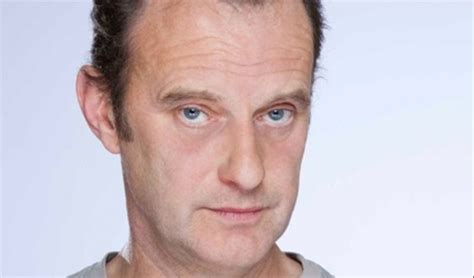A Quote by Michel Foucault
What is constitutive is the action that divides madness, and not the science elaborated once this division is made.
Related Quotes
Action from principle, the perception and the performance of right, changes things and relations; it is essentially revolutionary, and does not consist wholly with anything which was. It not only divides States and churches, it divides families; ay, it divides the individual, separating the diabolical in him from the divine.
The error in positivism is that it takes as its standard of truth the contingently given division of labor, that between the science and social praxis as well as that within science itself, and allows no theory that could reveal the division of labor to be itself derivative and mediated and thus strip it of its false authority.
Tony Cottee once played in all four divisions in one season. Cottee started 2000-01 at Leicester City, where he made a couple of Premiership appearances as a sub before being released to Norwich, in what was then Division One. In November the chance to be player-manager of Barnet came up and soon Cottee was playing in Division Three, but alas it did not work out. By March he was again looking for work and found it, with two sub appearances, at Millwall in Division Two.
An unauthentic word, one which is unable to transform reality, results when dichotomy is imposed upon its constitutive elements. When a word is deprived of its dimension of action, reflection automatically suffers as well; and the word is changed into idle chatter, into verbalism, into an alienated and alienating “blah.” It becomes an empty word, one which cannot denounce the world, for denunciation is impossible without a commitment to transform, and there is no transformation without action.
In this century the writer has carried on a conversation with madness. We might almost say of the twentieth-century writer that he aspires to madness. Some have made it, of course, and they hold special places in our regard. To a writer, madness is a final distillation of self, a final editing down. It's the drowning out of false voices.
The very problem of mind and body suggests division; I do not know of anything so disastrously affected by the habit of division as this particular theme. In its discussion are reflected the splitting off from each other of religion, morals and science; the divorce of philosophy from science and of both from the arts of conduct. The evils which we suffer in education, in religion, in the materialism of business and the aloofness of "intellectuals" from life, in the whole separation of knowledge and practice -- all testify to the necessity of seeing mind-body as an integral whole.
For most of Western civilization there was no real division between the realms of science, divinity, and artistic endeavor - they were just three strands of the same braid, all of them pulling toward the same beautiful desire: to try to understand the workings of this curious and beautiful world. There were many people who would have called themselves all three things at once: men of god, men of science, men of the arts.







































